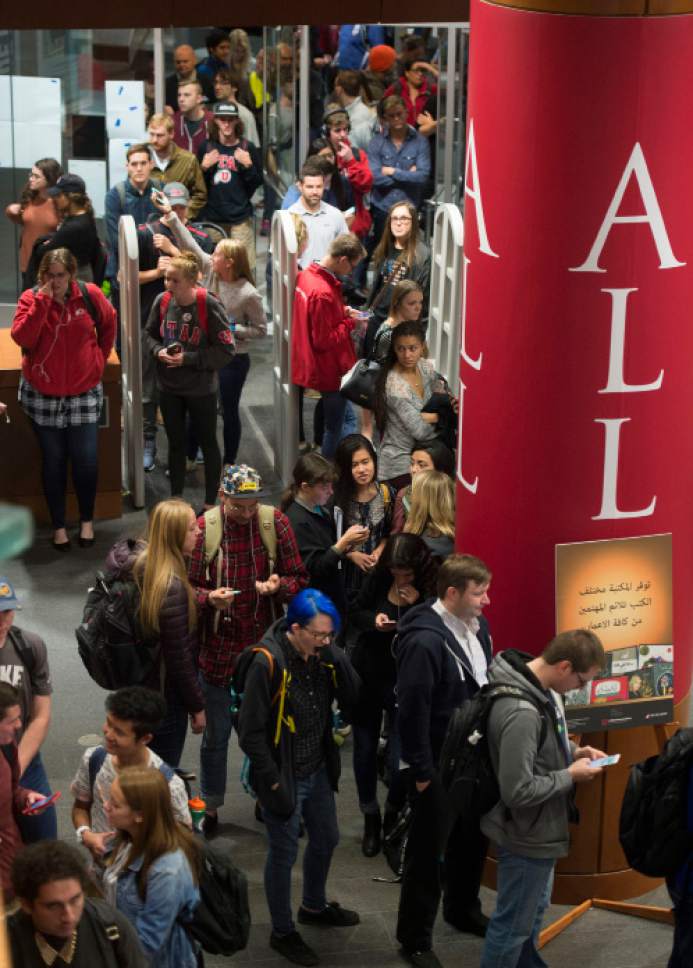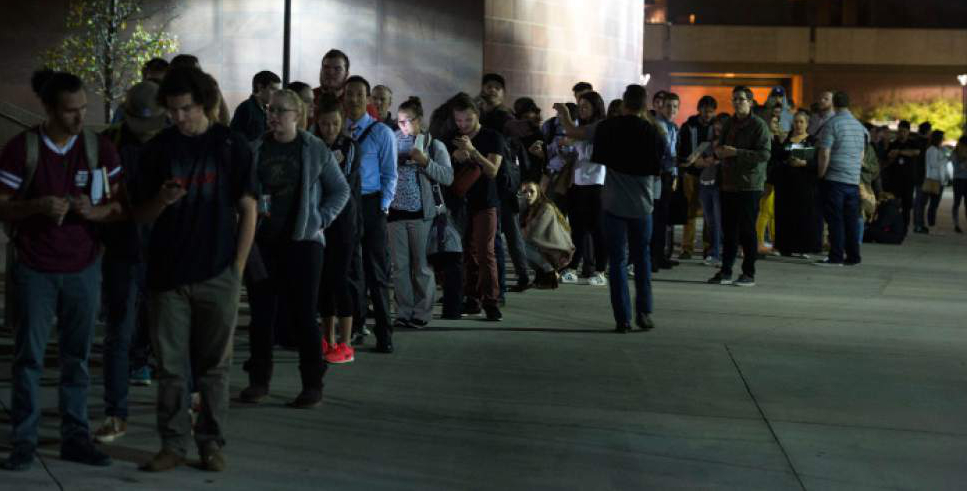This is an archived article that was published on sltrib.com in 2017, and information in the article may be outdated. It is provided only for personal research purposes and may not be reprinted.
Memories of long lines, spoiled ballots and disgruntled voters were on the minds of lawmakers Wednesday when a House panel advanced two bills aimed at improving Utah's elections.
The House Government Operations Committee signed off on a proposal to create a statewide presidential primary and a bill requiring county clerks to pay the postage cost of mail-in ballots and to notify voters if their ballots are invalid.
A third bill, making voter registration automatically linked to driver-license applications unless a person opts out, was held in committee, with lawmakers indicating that changes were needed before advancing to the House floor.
Rep. Patrice Arent, D-Millcreek, sponsored the presidential primary bill, arguing it would make it easier for Utahns to vote for a presidential candidate while avoiding the confusion and disorganization that occurred at the party caucuses last year.
"Political parties should be in the business of trying to win elections," Arent said, "not run them."
A presidential primary would cost $3 million, she said, with the bill requesting $750,000 each year.
"We can do it in pieces or we can do it in one chunk," Arent said. "But I hope that we can get there."
Ellen Brady said her precinct typically sees roughly 200 people at its meetings, but was swarmed by more than 2,000 during the 2016 presidential preference caucus.
The disruption of that vote, she said, made it difficult for her group to conduct routine business like electing precinct chairs.
"We had planned for many more than usual but we were simply overwhelmed," said Brady. "It was chaos. It was inappropriate and ultimately it ended up hurting the actual caucus process itself."
Utah Republican Party Chairman James Evans and Utah Democratic Party Chairman Peter Corroon both testified in support of the bill, although Evans said the Republican Party would not necessarily choose to participate in the state's primary.
"We believe that an eight-hour primary is a lot better than a two-hour caucus," Corroon said.
The committee also approved HB230, sponsored by Rep. Brad Daw, R-Orem, which seeks to mitigate some of the issues that resulted from the shift to vote-by-mail for November's election.
Some ballots were disqualified, or "spoiled", due to the signature on a mailed ballot not matching with the signature on file with county elections office.
"My signature varies wildly," Daw said. "There's a very good chance my ballot might be rejected just depending on how I was feeling when I signed it."
Daw's bill would require election workers to contact voters in an attempt to verify spoiled ballots, and would require counties to cover ballot postage costs.
Committee members considered removing the postage requirement after election clerks testified about the cost it would place on counties.
"That should be a local option," Weber County Elections Director Ryan Cowley said, "not an unfunded mandate from the state."
But requiring voters to pay their own postage could act as a deterrent to voting, Arent said, particularly among younger voters.
"They do everything electronically," Arent said. "Ask a college student if they have a stamp."
Twitter: @bjaminwood







